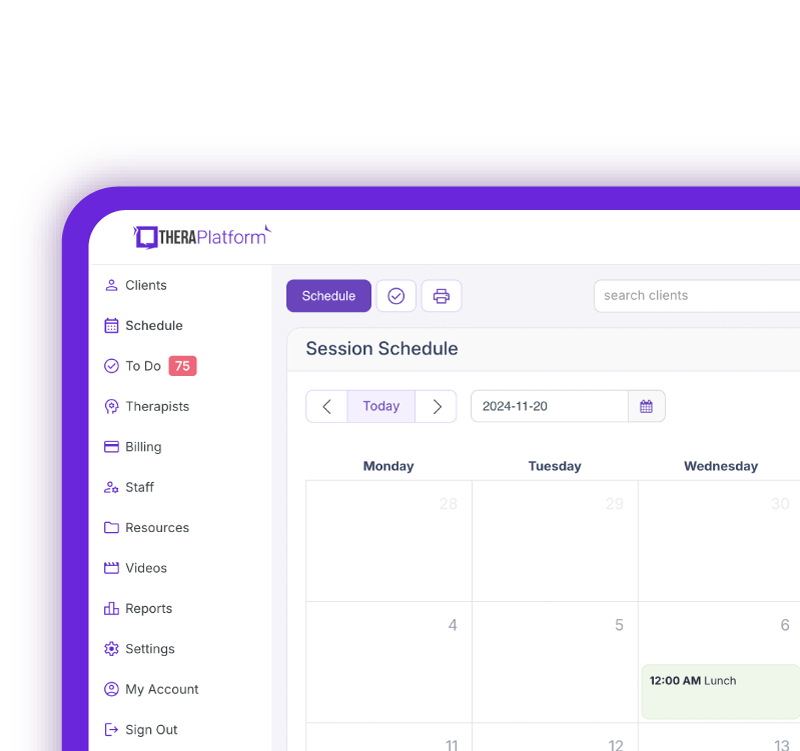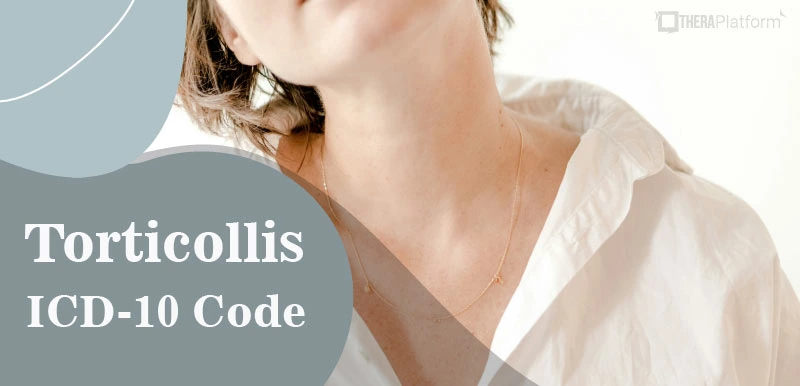ICD 10 Codes Occupational Therapy
GERD ICD 10

GERD ICD 10 is used to categorize Gastroesophageal reflux disease (GERD), a chronic condition in which stomach contents such as stomach acid or bile move up into the esophagus leading to heartburn, regurgitation, and irritation.
Summary
- The ICD-10 code for GERD is K21.9, which categorizes gastroesophageal reflux disease for accurate diagnosis, treatment planning, and insurance billing.
- GERD often coexists with mental health conditions like anxiety, depression, and sleep disorders, making it essential for therapy practitioners to recognize its impact on overall well-being.
- Proper documentation of GERD symptoms, comorbidities, and therapy interventions ensures effective treatment planning, tracks progress, and facilitates smooth insurance reimbursement. Enrolling in an insurance billing course for therapists can help providers enhance their knowledge.
- Understanding insurance policies, using correct ICD-10 codes, and leveraging electronic health records (EHRs) can help therapists streamline the billing process and minimize claim denials.
→ Click here to enroll in our free on-demand Insurance Billing for Therapists video course [Enroll Now]
Other symptoms of GERD include non-burning chest pain and difficulty swallowing.
A recent review showed the prevalence of GERD is 18.1–27.8% in North America.
Additionally, there’s been a significant increase in the proportion of younger patients with GERD, especially those within the age range of 30–39 years.
Therapy practitioners need to understand GERD and its management, particularly when it co-occurs with mental health conditions like anxiety, depression, stress, sleep disorders, and chronic pain. This knowledge increases awareness of effective therapeutic interventions and helps practitioners recognize when a referral to a medical provider is warranted.
Streamline your insurance billing with One EHR
- Claim batching
- Auto claims
- Automated EOB & ERA
- Real-time claim validation
- Real-time claim tracking
- Aging and other reports

ICD-10 Code overview
An ICD-10 code stands for International Classification of Diseases, 10th Revision (ICD-10). It is a “diagnostic and procedure coding system endorsed by the World Health Organization (WHO).”
The use of ICD-10 codes “improves clinical communication by providing more information per code and better support for care management, quality measurement, and analytics. It also offers an improved ability to understand risk and severity.”
In occupational therapy practice, the ICD-10 is a billable/specific ICD-10-CM code that can be used for diagnosis for reimbursement purposes.
Precise coding for managing GERD in therapy assists with client-centered treatment planning and increases efficiency in billing and documentation. These are all essential to address and manage GERD and co-morbidities, track progress, and ensure appropriate reimbursement for therapy services.
Watch this video to learn common insurance billing struggles and solutions
→ Start My Free Trial
→ Start My Free Trial
Documenting GERD ICD 10 in therapy
Documentation is an integral aspect of therapy for treatment planning, tracking progress, and ensuring billing and reimbursement. A thorough analysis of the patient’s condition including symptoms and co-morbidities of GERD are crucial for a comprehensive understanding of the patient.
The GERD ICD 10 is K21.9 which explains GERD as a “a chronic disorder characterized by reflux of the gastric and/or duodenal contents into the distal esophagus,” according to the ICD 10 data website.
The GERD ICD 10 code is K21.0, which is non-billable.
Coding for GERD in therapy documentation involves describing GERD symptoms such as pain, and mental health concerns such as anxiety, depression, sleep, and stress issues, which allow for improved client-centered therapeutic intervention methods.
For example, for a client who is suffering from sleep or stress disorders due to GERD, ICD-10 code K21.9 would be utilized alongside reporting sleep or stress disorders due to GERD symptoms.
Furthermore, clear documentation and accurate coding is necessary to ensure how GERD and its comorbidities impact therapy outcomes as well as how GERD ties into therapy goals such as addressing stress management or anxiety.
Practice Management + EHR + Telehealth
Mange more in less time in your practice with TheraPlatform

.
Documentation and tips for the GERD ICD 10 code
Therapists often encounter common coding and billing challenges, including correct code usage, insufficient documentation, such as lack of detail, omission of comorbidities, navigating insurance coverage limitations, and addressing claim denials. These issues can delay therapy reimbursement, disrupt patient care, can result in frustration, and impact therapeutic relationships.
Reviewing a patient’s insurance policy, including coverage limits, facilitates effective treatment planning and goal-setting. It also helps patients understand their financial responsibilities upfront.
To reduce claim denials and optimize reimbursement, therapists should ensure the following:
- Utilize accurate and current GERD ICD 10 codes
- Stay informed about ICD-10 coding guidelines and changes
- Provide comprehensive documentation regarding GERD and therapy services
- Coordinate with medical providers to provide consistency with coding
- Educate clients regarding insurance policies and out-of-pocket costs
- Verify insurance coverage
- Obtain pre-authorizations when and if required by the insurance provider
Leveraging education, resources, and EMRs not only streamlines documentation but also improves compliance with GERD ICD 10 standards, leading to greater accuracy and efficiency in coding.
Additionally, therapists should make use of valuable tools and resources such as ICD-10 coding manuals, and reliable websites like ICD-10 Data and CMS, and seek guidance from coding specialists when needed. This comprehensive approach supports accurate billing, minimizes denials, and ensures compliance in the complex landscape of healthcare
Accurate use of the GERD ICD 10 codes are essential for effective documentation, efficient billing, and smooth reimbursement processes.
Staying up-to-date with ICD-10 coding guidelines, maintaining detailed and comprehensive documentation, and fostering cross-disciplinary collaboration are key strategies to optimize therapy services while reducing administrative burdens. Additionally, consistent tracking of progress and the use of standardized templates further enhance coding accuracy and allow for efficient therapy practices.
Staying informed about ICD-10 updates and utilizing available resources, including EMRs and staff education, helps maintain compliance with evolving healthcare standards.
How EHR and practice management software can save you time with insurance billing for therapists
EHRs with integrated billing software and clearing houses, such as TheraPlatform, offer therapists significant advantages in creating an efficient insurance billing process. The key is minimizing the amount of time dedicated to developing, sending, and tracking medical claims through features such as automation and batching.
What are automation and batching?
- Automation refers to setting up software to perform tasks with limited human interaction.
- Batching or performing administrative tasks in blocks of time at once allows you to perform a task from a single entry point with less clicking.
Which billing and medical claim tasks can be automated and batched through billing software?
- Invoices: Create multiple invoices for multiple clients with a click or two of a button or set up auto-invoice creation, and the software will automatically create invoices for you at the preferred time. You can even have the system automatically send invoices to your clients.
- Credit card processing: Charge multiple clients with a click of a button or set up auto credit card billing, and the billing software will automatically charge the card (easier than swiping!)
- Email payment reminders: Never manually send another reminder email for payment again, or skip this altogether by enabling auto credit card charges.
- Automated claim creation and submission: Batch multiple claims with one button click or turn auto claim creation and submission on.
- Live claim validation: The system reviews each claim to catch any human errors before submission, saving you time and reducing rejected claims.
- Automated payment posting: Streamline posting procedures for paid medical claims with ERA. When insurance offers ERA, all their payments will post automatically on TheraPlatform's EHR.
- Tracking: Track payment and profits, including aging invoices, overdue invoices, transactions, billed services, service providers.
Utilizing billing software integrated with an EHR and practice management software can make storing and sharing billing and insurance easy and save providers time when it comes to insurance billing for therapists.
Streamline your practice with One EHR
- Scheduling
- Flexible notes
- Template library
- Billing & payments
- Insurance claims
- Client portal
- Telehealth
- E-fax

Resources
TheraPlatform is an all-in-one EHR, practice management, and teletherapy software built for therapists to help them save time on admin tasks. It offers a 30-day risk-free trial with no credit card required and supports different industries and sizes of practices, including occupational therapists in group and solo practices.
More resources
- Therapy resources and worksheets
- Therapy private practice courses
- Ultimate teletherapy ebook
- The Ultimate Insurance Billing Guide for Therapists
- The Ultimate Guide to Starting a Private Therapy Practice
- Mental health credentialing
- Insurance billing 101
- Practice management tools
- Behavioral Health tools
Free video classes
- Free on-demand insurance billing for therapist course
- Free mini video lessons to enhance your private practice
- 9 Admin tasks to automate in your private practice
References
2025 ICD-10-CM Diagnosis code K21.9: Gastro-esophageal Reflux Disease without Esophagitis. https://www.icd10data.com/ICD10CM/Codes/K00-K95/K20-K31/K21-/K21.9
Understanding ICD-10. Johns Hopkins Medicine. https://www.hopkinsmedicine.org/johns-hopkins-health-plans/providers-physicians/icd-10
Yamasaki, T., Hemond, C., Eisa, M., Ganocy, S., & Fass, R. (2018, October 1). The Changing Epidemiology of Gastroesophageal Reflux Disease: Are Patients Getting Younger? Journal of Neurogastroenterology and Motility. https://www.jnmjournal.org/journal/view.html?doi=10.5056%2Fjnm18140



